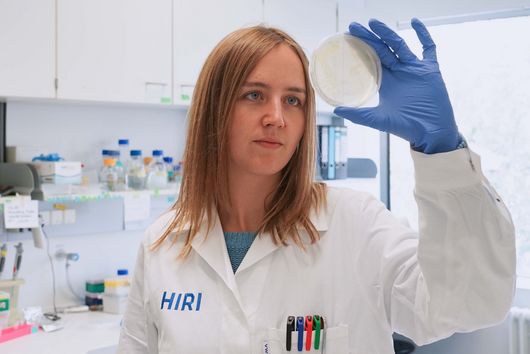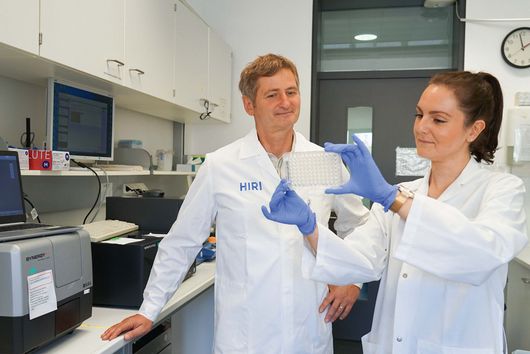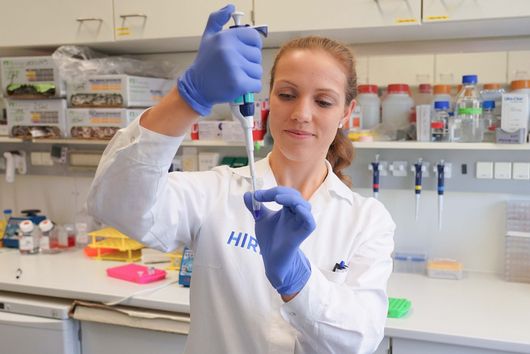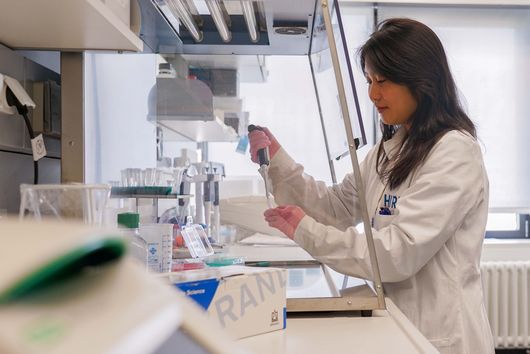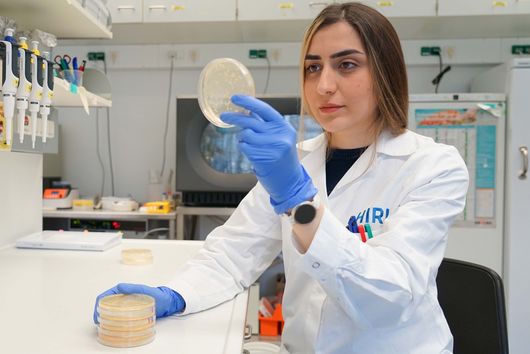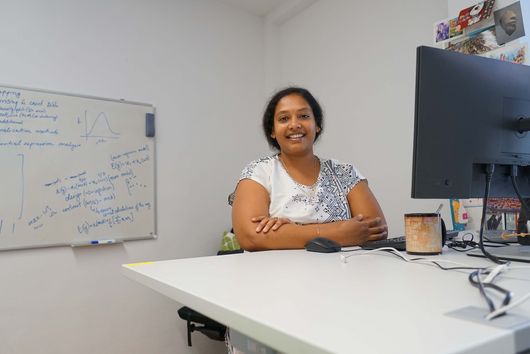
“We are pioneers”
Jörg Vogel is the director of the Helmholtz Institute in Würzburg. In his leisure time, the biochemist enjoys traveling, reading contemporary literature, canoe sprint on the Main river and spending time with his family. An interview
Bavaria or Berlin?
Jörg Vogel: (Laughing, imitating the Franconian accent) Lower Frrrrongonia!—Sure, I have previously studied and researched in Berlin as well as in Jerusalem, London and Uppsala. But after more than ten years in Würzburg, I feel at home here. And I have also found my professional base—after all, I was able to found the world's first institution of its kind here which combines RNA research with infection biology ...
… the Helmholtz Institute for RNA-based Infection Research, or HIRI, for short.
Precisely. I came here in 2009 to be the Director of the Institute for Molecular Infection Biology at the Julius-Maximilians-Universität (JMU). Würzburg is a powerful research site, and in the field of medicine in particular there are excellent synergies with the university hospital, for example. In 2017, after a tough competitive process, we were able to establish the HIRI in Würzburg. It is a site of the Braunschweig Helmholtz Centre for Infection Research (HZI), run in cooperation with our University. Our major goal is to develop innovative approaches to better understand, diagnose and treat infectious diseases. Being on the Würzburg medical campus is excellent: Here, we can cover the full spectrum of complementary cutting-edge research, from basic RNA research to the clinical sector and medical applications.
How has the HIRI contributed to the research on SARS-CoV-2, the virus that is causing the current pandemic?
At the beginning of the pandemic, our scientists immediately began to study the infection process and the course of the disease. We have contributed to a better understanding of how the virus interacts with human cells and to potential therapeutic approaches. During this research, it was and still is important that our institute cooperates with other institutions in national and international networks. This is the only way to find solutions to the medical challenges of our time. Research funding is very important as well. The HIRI has been very successful in raising third-party funds, including funds to continue our work on SARS-CoV-2. My top priority at the moment, however, is our new institute building with its own laboratories. Construction will soon start on the medical campus. We are simply running out of space for our growing number of researchers.
Prof Jörg Vogel
Profession: Biochemist
Career Stations: Cottbus, Berlin, London, Jerusalem, Uppsala, Würzburg
Laurels: Leibniz Prize Laureate. One of the most cited scientists in his field
Favorite place in Würzburg: Valentino Café (should be open 24/7)
When I want to unwind: I spend time with my family. I also enjoy traveling, canoeing on the Main river, and reading contemporary literature.
What I'm looking forward to in 2022: A summer (mostly) without meetings and committee work.
You also do research in the context of cancer. What is the link to infections?
There are various pathogens that contribute to the development of cancer. Others accelerate tumor progression—such as the Fusobacterium, which we study in my lab. Fusobacteria are part of the human oral microbiota. But they are also found on carcinomas of the intestine or breast, where they fuel cancer growth and complicate therapy. If we can decipher the molecular interactions between the pathogen and the infected host cell—and we are technological pioneers in investigating this question at the single-cell level—then we will be able to develop tailor-made therapeutics.
Let’s continue with “tailor-made”: Precision medicine or personalized medicine seems to be the future.
What does that mean?
The mRNA vaccine against COVID-19 very clearly demonstrates how therapeutic agents based on ribonucleic acids, i.e. RNA, can be developed and customized very quickly. We want to take advantage of this adaptability in order to treat and even cure cancer and rare genetic disorders. We want to detect and combat disease before you feel the symptoms.
Antibiotic resistance is another challenge in the field of infection medicine.
Does RNA research provide solutions in this area as well?
Indeed, there is an urgent need for new types of anti-infective drugs because conventional antibiotics often fail in the fight of multidrug-resistant bacteria. To understand why pathogens escape therapy, we are studying their RNA. And we are developing novel, programmable RNA-based antibiotics.
You have mentioned that the researchers at the HIRI are also technological pioneers:
How can infection research lead to new technologies?
In the past year, for example, research at the HIRI in cooperation with the University of Würzburg led to the development of LEOPARD, a new diagnostic platform. The technology is based on new insights from bacterial immune systems. Unlike conventional PCR tests, LEOPARD allows the detection of harmless cold viruses and SARS-CoV-2 and its variants in a single sample. A patent application has been filed for this technology, which is now being developed to market. LEOPARD is an excellent example of the success of clinical translation in Würzburg: from basic research to applications.


